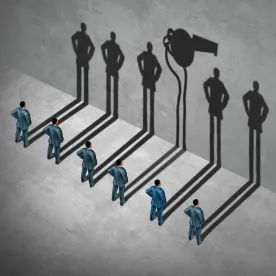The U.S. Supreme Court’s holding in Cochise Consultancy, Inc. v. United States, ex rel. Hunttakes an expansive view of the time period relators have to file False Claims Act, 31 U.S.C. § 3731(b) (FCA), claims. This could have a broad impact on future FCA cases, as it gives plaintiffs the choice of two limitations periods, whichever is later; potentially forces defendants to deal with the expense of longer discovery periods; and may ultimately increase the already large amount of money that relators and the government can potentially recover.
Resolving the Circuit Split
Under the FCA, an action must be brought either within six years after the statutory violation occurred, 31 U.S.C. § 3731(b)(1), or within three years after the government knew or should have known the relevant facts (but no more than 10 years after the violation), 31 U.S.C. § 3731(b)(2), whichever is later. On May 13, 2019, the Supreme Court resolved a three-way circuit split, unanimously holding that both limitations periods in the FCA apply. The issue presented for the Court was how to calculate the limitations period for qui tam suits in which the United States does not intervene. Since the FCA’s shorter potentially applicable limitations period is triggered by notice, courts differed on whether that trigger applied in cases where the government did not intervene. The Supreme Court decided unanimously that a whistleblower relator is not an official of the United States, and therefore a relator’s knowledge of alleged false claims does not trigger the three-year statute of limitations. This standard affirms the fundamental principle behind the history of the FCA and the Latin meaning of qui tam – that whistleblower relators who bring cases without government involvement are serving the function of suing on behalf of the sovereign as well as themselves.
Whistleblower Billy Joe Hunt
In November 2013, relator Hunt sued his old employer and its subcontractor (collectively “Cochise”) for allegedly defrauding the government by submitting false payment claims for providing security services in Iraq up until early 2007. Hunt claimed he revealed Cochise’s fraud during a November 2010 interview with federal officials (making his November 2013 filing timely using the limitations period of three years after the government knew and within 10 years of the violation). The United States declined to intervene in the case. The district court dismissed the case for being time-barred under the six-year statute of limitations (from the date of the violation). The Eleventh Circuit reversed, holding that the three-year government-knowledge limitation period applies even when the government does not intervene in a case.
The Supreme Court affirmed the Eleventh Circuit’s holding, finding Hunt’s interview with federal officials in 2010 reactivated the three-year statute of limitations to allow for more available time to file suit. Thus, the Supreme Court held that a relator-initiated, non-intervened suit is a civil action under § 3730 and is subject to both of the limitations periods in § 3731 (b)(1) and (b)(2), whichever is later.
Show Me the Money
The ruling is significant insofar as the FCA incentivizes relators to pursue cases even if the government declines to intervene. If the government intervenes in a relator’s qui tam case, the relator is entitled to receive between 15 and 25 percent of the amount recovered by the government, but if the government declines to intervene, the relator’s share of the recovery is increased to 25 to 30 percent. Furthermore, if a relator’s qui tam case is successful, the relator also is entitled to receive legal fees and other expenses incurred as a result of defendant’s action.
By establishing that relators are not limited to filing their case within three years after they discover the underlying facts pursuant to 31 U.S.C. § 3731(b)(2), the court’s Cochise decision may cause an overall increase in the number of complaints filed and in the amount of money recovered by relators and the government. The increased number of complaints would come because the potential three-year time bar had previously dissuaded attorneys (and their clients) from pursuing cases where the relator was aware of the underlying facts for a substantial period of time. In addition, the value of the cases could go up now that relators have the option to wait for a longer period of time to file a qui tam action. Put another way, by waiting to file, the relator potentially increases the number of false claims at issue, thus increasing the amount of fraud loss and overall value of the case. Considering that companies will be at risk of qui tamlawsuits over an extended period of time, this may impact company valuations at sale and ultimately impact the amount of money that relators and the government can potentially recover, because a longer claims period means more money at issue if a qui tam action is filed at the last possible moment under the statute. Thus, companies must be aware that because they are now susceptible to FCA claims brought within three years of when the government knows about the alleged fraud (even when the government decides not to intervene), it may make it more difficult and costly for them to defend against these claims.
The U.S. Department of Justice (DOJ) recovered $2.8 billion from FCA cases during fiscal year 2018. Although this total recovery was a decline from the amount recovered by the DOJ in fiscal years 2016 ($4.7 billion) and 2017 ($3.7 billion), it remains sizable, and is part of the overall trend towards increased filings.






 />i
/>i
